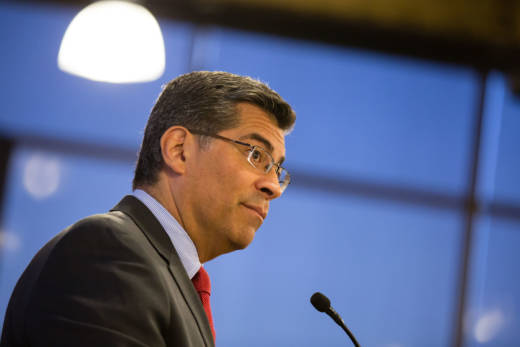California Attorney General Xavier Becerra said Thursday that he will join nine other states suing the Trump administration over its “cruel and unlawful policy of forcibly separating children from their parents without any legitimate justification.”
The lawsuit, which is still being crafted, will seek to create a process for reunifying more than 2,300 children who have already been taken from their parents, Becerra stated. It will challenge the underlying policy of separating children from their families as a violation of children’s due process rights.
That policy was halted Wednesday by President Trump, who issued an executive order instructing immigration officials to continue to criminally prosecute anyone who crosses the border illegally but to keep families together in detention.
Even with that change in policy, Becerra said, questions remain about what will happen to the families that have already been separated, and what exactly the executive order will do. Becerra called the order “empty and meaningless” and a “political stunt.”
“Children belong with their families, not alone and fearful in metal cages. We are filing this lawsuit because ripping children from their parents is unlawful, wrong and heartless,” Becerra said in a written statement. “These children, their parents, and people around the world need answers regarding what comes next. This policy could have devastating consequences on children’s health and well-being. Dividing families who are being persecuted and fleeing violence is simply appalling. Separating children from their families is a new low, even for the Trump Administration.”
